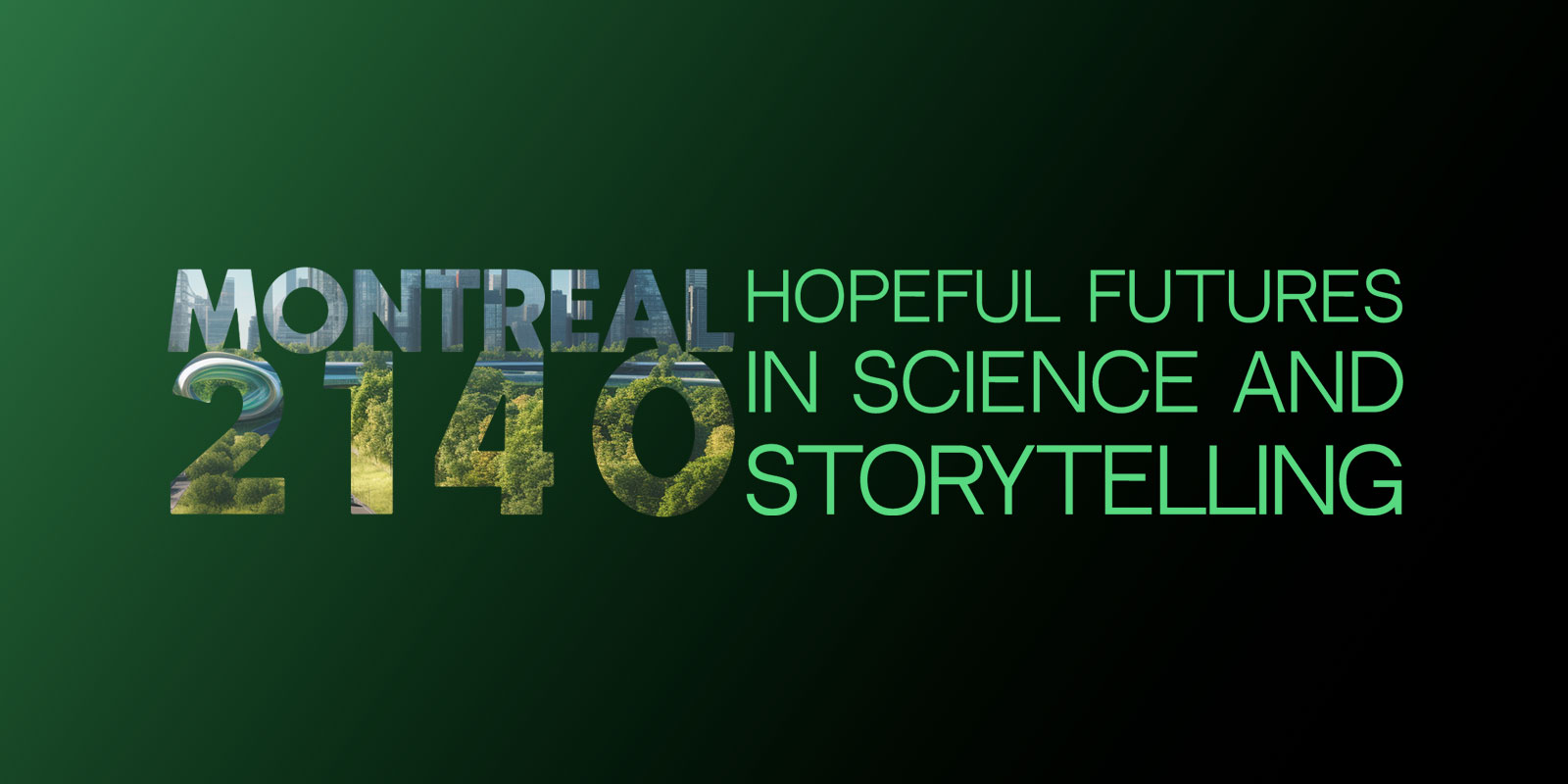
Extreme weather, fires, and other effects of the climate crisis around the world increasingly resemble the apocalyptic scenes that have long dominated Hollywoodʼs approach to the future. Beyond science fiction, negative discourses and pessimism, apathy, and paralysis dominate conversations around climate, even within academia.
As a result, environment-aware students often feel powerless and depressed by the situation, as there does not seem to be any possible happy ending. Yet society is counting on these future actors of society to lead us out of the impending crisis. There is thus a growing need for narratives of hope, optimism, resilience, and survival.
Hopepunk inspiration
Organized by McGill’s Bieler School of Environment, the Montreal 2140: Hopeful Futures in Science and Storytelling conference in October 2023 is inspired by the science fiction genre of “hopepunk” – a term coined by writer Alexandra Rowland who says that “in this world of brutal cynicism and nihilism, being kind is a political act. An act of rebellion. It’s about demanding a better, kinder world.” The conference title, Montreal 2140, is a deliberate nod to the novel New York 2140, by science fiction author Kim Stanley Robinson, one of the conference’s two keynote speakers, alongside award-winning author Annalee Newitz.
“We are responding to the existential crisis being expressed by our students who say they have little to no hope for the future of the planet,” explains Professor Renee Sieber, who recently co-taught the class ENVR 400 – Environmental Thought from the perspective of “commanding hope.”
“Academic research, which accurately reports on habitat loss or droughts or temperature extremes, only adds to the drumbeat of the dire impacts of the climate,” says Sieber. “We, as researchers and instructors have an obligation to provide glimmers of hope, where possible.”
Moving forward together
“Dystopian visions of the future run the risk of being self-fulfilling,” says Professor Elena Bennett, who will host a “Seeds of Good Anthropocenes Workshop” on Friday, Oct. 13. “This conference brings together scholars across an extremely wide range of disciplines along with writers and artists, encouraging creative and novel thinking in a way that just doesn’t usually happen in our normal academic silos.”
Education and Society master’s candidate Daphne Chalmers says: “Not very often do we get scientists, writers, young people, educators, and community members all in the same room together dialoguing, dreaming, and imagining, to find ways to move forward, together.”
Intersection of art and science
Montreal 2140 will also imagine what the city of Montreal might look like in the year 2140, by way of an art and writing competition, open to the public. “The combination of art and science and the way we craft narratives have the power to transform people’s minds, and the potential to change the course of how we think about the future,” comments Professor Kevin Manaugh.
“I see art as a pivotal force in the collective drive to save the planet, which can shift perspectives towards hopeful frames of mind, ultimately encouraging action in the fight for climate justice,” says Art History major Rachel Barker.
“In Not Too Late: Changing the Climate Story from Despair to Possibility, Rebecca Solnit writes that ‘To hope is to accept despair as an emotion but not as an analysis,’” notes Julia Freeman, PhD, who also co-taught ENVR 400. “The fires and floods and tornadoes that have affected so many people this summer have unsettled me deeply. But this is not where I am willing to remain. I look forward to working with and learning from creative, courageous people who are willing to come together, ready to imagine and work toward a safe and just climate future for us all.”
Montreal 2140 takes place on October 12-13. Check out the conference website and register here.
